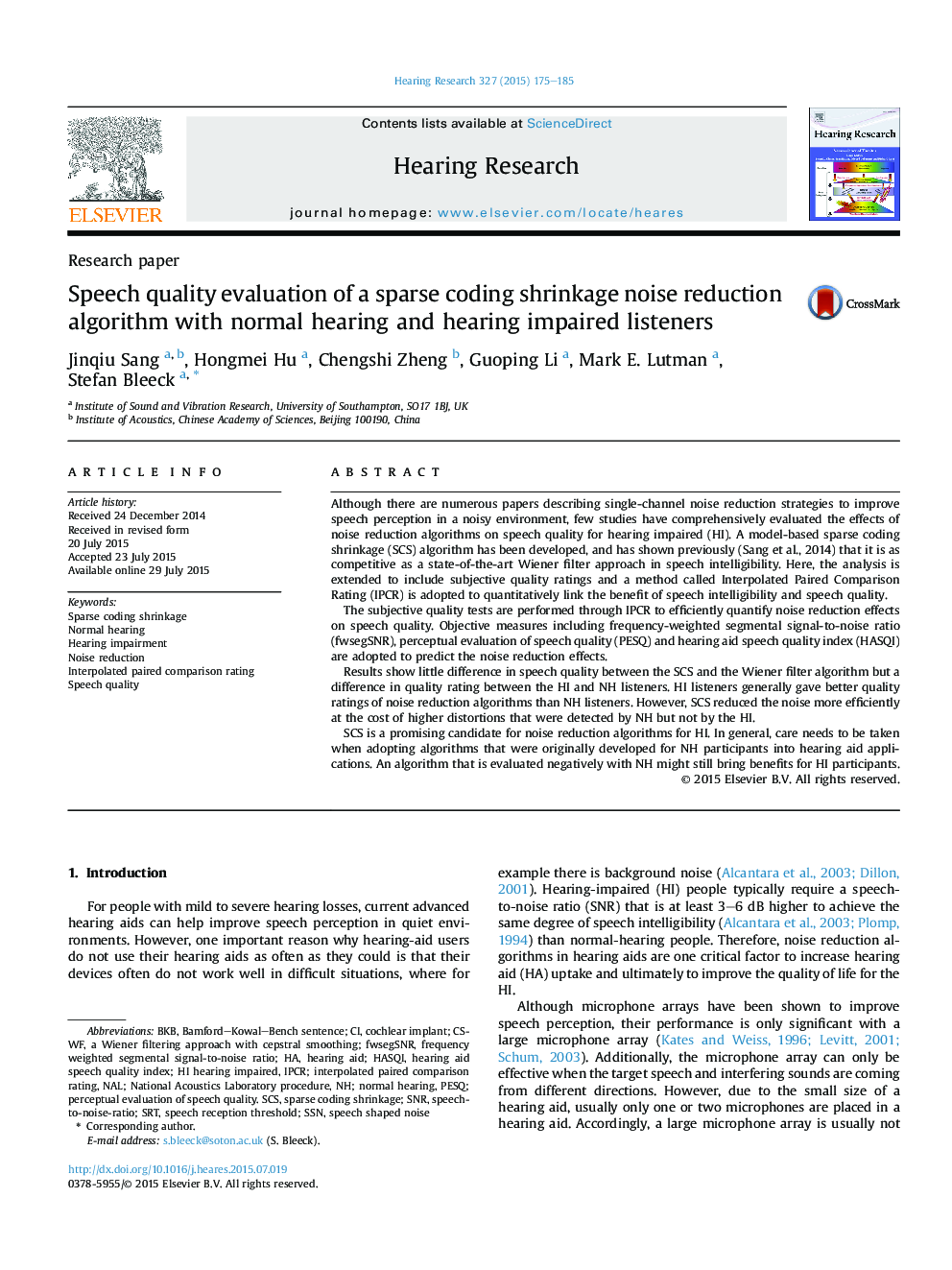| کد مقاله | کد نشریه | سال انتشار | مقاله انگلیسی | نسخه تمام متن |
|---|---|---|---|---|
| 6287330 | 1615573 | 2015 | 11 صفحه PDF | دانلود رایگان |
- A sparse coding shrinkage (SCS) algorithm on speech quality was evaluated.
- A method called Interpolated Paired Comparison Rating (IPCR) was adopted.
- The subjective measures were quantitatively compared with the objective measures.
- There was no large difference in quality between the SCS and the Wiener filtering.
- There was a difference in quality between hearing impaired and normal hearing.
Although there are numerous papers describing single-channel noise reduction strategies to improve speech perception in a noisy environment, few studies have comprehensively evaluated the effects of noise reduction algorithms on speech quality for hearing impaired (HI). A model-based sparse coding shrinkage (SCS) algorithm has been developed, and has shown previously (Sang et al., 2014) that it is as competitive as a state-of-the-art Wiener filter approach in speech intelligibility. Here, the analysis is extended to include subjective quality ratings and a method called Interpolated Paired Comparison Rating (IPCR) is adopted to quantitatively link the benefit of speech intelligibility and speech quality.The subjective quality tests are performed through IPCR to efficiently quantify noise reduction effects on speech quality. Objective measures including frequency-weighted segmental signal-to-noise ratio (fwsegSNR), perceptual evaluation of speech quality (PESQ) and hearing aid speech quality index (HASQI) are adopted to predict the noise reduction effects.Results show little difference in speech quality between the SCS and the Wiener filter algorithm but a difference in quality rating between the HI and NH listeners. HI listeners generally gave better quality ratings of noise reduction algorithms than NH listeners. However, SCS reduced the noise more efficiently at the cost of higher distortions that were detected by NH but not by the HI.SCS is a promising candidate for noise reduction algorithms for HI. In general, care needs to be taken when adopting algorithms that were originally developed for NH participants into hearing aid applications. An algorithm that is evaluated negatively with NH might still bring benefits for HI participants.
Journal: Hearing Research - Volume 327, September 2015, Pages 175-185
